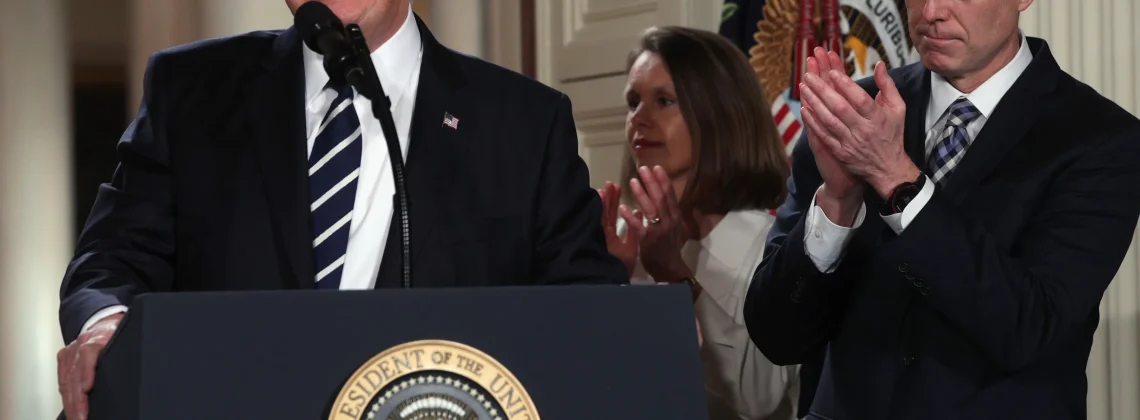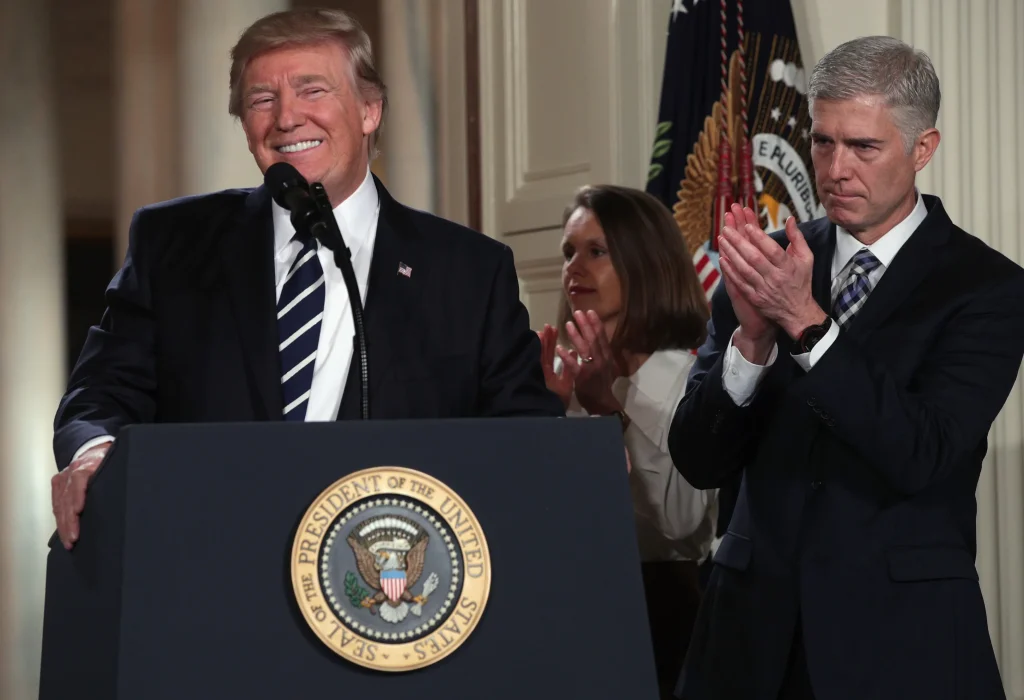

University of Maryland history professor Holly Brewer writes, “The conservative justices have ignored history altogether and created a shocking new precedent: The president is above the law.” Here is a taste of her piece at The New Republic:
Five members of the Supreme Court of the United States want to take us back to seventeenth-century absolutism. In a stunning rejection of originalist interpretation, and in defiance of the single statement carved onto the front of the majestic building where they work (“Equal justice under law”), the justices ruled Monday that the president does not have to abide by the laws of the land. They agreed that presidents might be liable for purely private acts, such as Bill Clinton lying about engaging in oral sex in the Oval Office. But in the appropriately titled Trump v. the United States, they have narrowed the scope of possible prosecution so dramatically that in effect Donald Trump cannot be held accountable for almost any of his efforts on January 6, 2021, to retain power beyond his term. The result, as Justice Ketanji Brown Jackson wrote in her dissent, is that the court has created a paradigm shift: “The Court has unilaterally altered the balance of power between the three coordinate branches of our Government as it relates to the Rule of Law, aggrandizing power in the Judiciary and the Executive.” The 6–3 majority—five of them in particular—created a ticking time bomb that ignored the Constitution’s most fundamental principles, making it easy for future presidents to become dictators and act with impunity.
Last October, special counsel Jack Smith finally indicted Trump on four counts. These included conspiracy to defraud the United States, conspiracy to obstruct the counting of Electoral College votes on January 6, actually obstructing the counting of those votes, and preventing the exercise of the fundamental right to vote. For many of us, having watched in horror the events of that day, the counts were long overdue. These counts were modest (no actual counts of treason or seditious conspiracy, for example, even though substantial evidence for both exists), but they were enough that, should he be convicted, Trump faced years in jail. They seemed to promise some accountability for the leader of the coup attempt. They fulfilled what Trump’s own lawyers and Mitch McConnell, at the time the Senate majority leader, had argued during Trump’s second impeachment trial: Trump should not be impeached because the Senate did not provide the proper forum for such judgment. Instead, he was accountable before the regular courts. Brought by a grand jury, the cases were scheduled to be heard before a jury on March 4, 2024.
By then, Trump had new lawyers who argued exactly the opposite of his lawyers in the impeachment case: that as president he was above the law. Their theory was that because the “chief executive” under the common law of England before the Revolution had certain privileges and immunities, those must have been retained by the president after the revolution. I worried that the conservative majority on the Supreme Court might believe this ahistorical interpretation. Because I have read so widely in legal treatises of the 1790s, I agreed to compose the first draft of an historians’ amicus brief for the court on this case. With support from the Brennan Center for Justice and a major law firm, I and 14 other historians explained as clearly as possible a central principle of nearly every founding-era legal treatise and the Constitutional Convention, ratifying conventions, and state constitutional conventions. Presidents were not like kings, but accountable to the law like any other citizen. It was both humbling and gratifying during the oral argument, then, when the conservatives on the court avoided addressing historical arguments, even as Justices Jackson, Elena Kagan, and Sonia Sotomayor quoted from our brief.
Brewer concludes:
There is still a slim chance for prosecuting Trump for January 6, as the majority allowed that some of the charges, “such as those involving Trump’s interactions with the Vice President, state officials, and certain private parties, and his comments to the general public … present more difficult questions.” But their insistence that Trump’s attempts to pressure Vice President Mike Pence not to certify Joe Biden’s victory involve official conduct and that “Trump is at least presumptively immune from prosecution for such conduct,” will make it nearly impossible for Smith to move forward with any prosecution.
Because impeachment of justices under our Constitution is so difficult, requiring a two-thirds vote in the Senate for conviction, it seems impossible to hold them accountable for a decision that must be expeditiously remedied. But this decision also has persuaded me that President Biden needs to overbalance these wingnuts. He must take advantage of the fact that the number of justices on the court is flexible. He should appoint four new justices who have some integrity, to match the number of district courts (now 13). In the 1790s, when the nation was much smaller, we had six. This partisan court is doing so much to undermine the U.S. government and Constitution, with not only this absolutist decision but their other precedent-destroying decisions of the past weeks and years, that they are inviting a level of chaos that even they don’t have the power to contain—and that’s exactly the kind of environment in which authoritarians like Donald Trump thrive. The Supreme Court has effectively ruled that 250 years of U.S. history under a republic is enough.
Read the entire piece here.